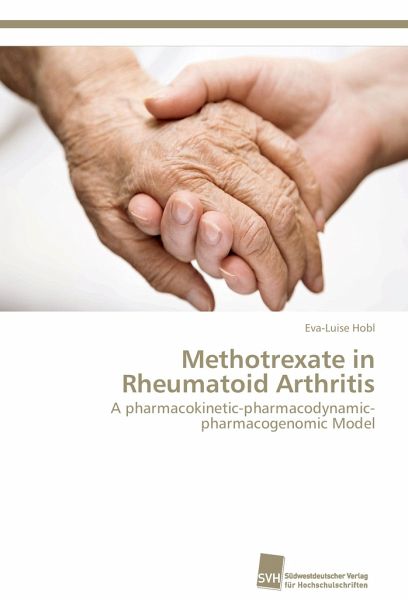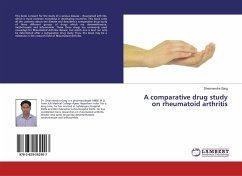
Methotrexate in Rheumatoid Arthritis
A pharmacokinetic-pharmacodynamic-pharmacogenomic Model
Versandkostenfrei!
Versandfertig in 6-10 Tagen
79,90 €
inkl. MwSt.

PAYBACK Punkte
0 °P sammeln!
Affecting approximately one percent of the adult world population, rheumatoid arthritis is the most common inflammatory joint disease. Due to its positive benefit-risk ratio, Methotrexate (MTX) is first-line therapy in rheumatoid arthritis. Although the drug is very effective, the large inter-patient variability regarding efficacy and frequency of adverse events are major drawbacks. The author describes a randomized, double-blinded controlled clinical trial, investigating the role of methotrexate polyglutamates as a marker for clinical response. Based on the detailed analysis of pharmacokineti...
Affecting approximately one percent of the adult world population, rheumatoid arthritis is the most common inflammatory joint disease. Due to its positive benefit-risk ratio, Methotrexate (MTX) is first-line therapy in rheumatoid arthritis. Although the drug is very effective, the large inter-patient variability regarding efficacy and frequency of adverse events are major drawbacks. The author describes a randomized, double-blinded controlled clinical trial, investigating the role of methotrexate polyglutamates as a marker for clinical response. Based on the detailed analysis of pharmacokinetic parameters, a pharmacokinetic-pharmacodynamic-pharmacogenomic model of MTX was established. MTXPG2, a short-chain polyglutamate, was identified as a potential marker for clinical response. The results, that MTX modulates key cytokines involved in the pathogenesis of the disease, provide important insights into its mode of pharmacological action. This book is directed toward physicians and clinical scientists who want to gain a better unterstanding of the use of MTX in rheumatoid arthritis.














